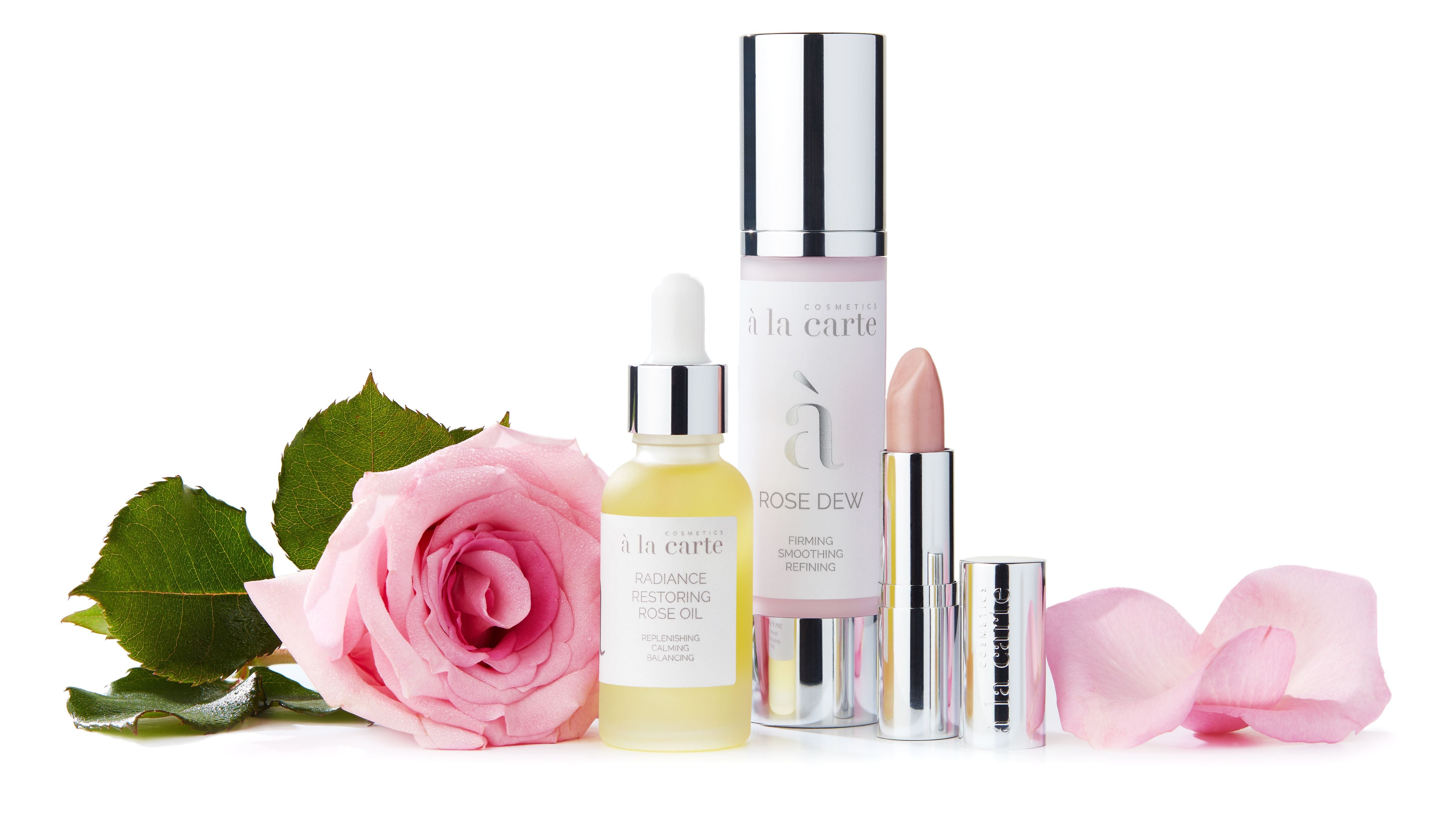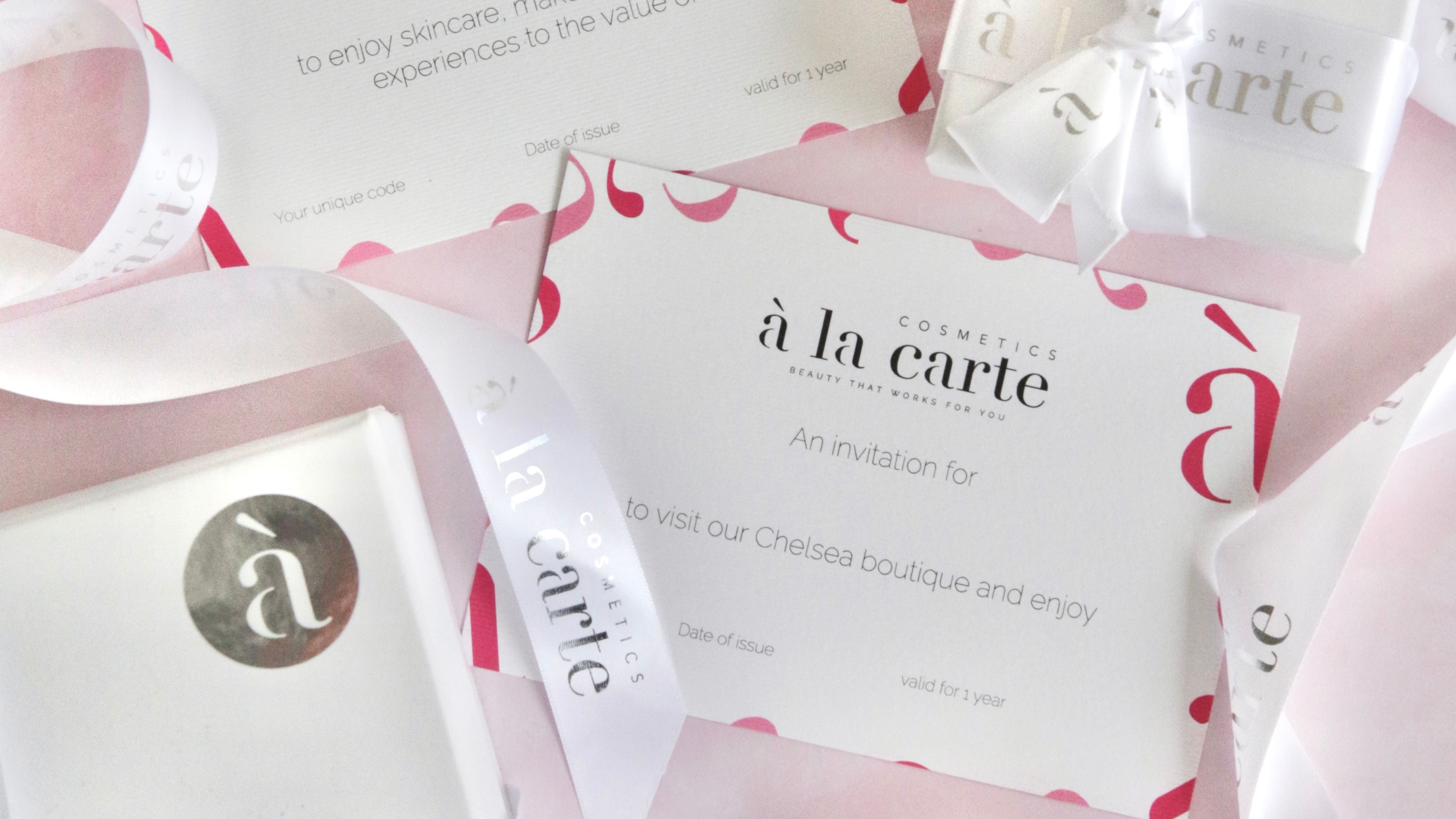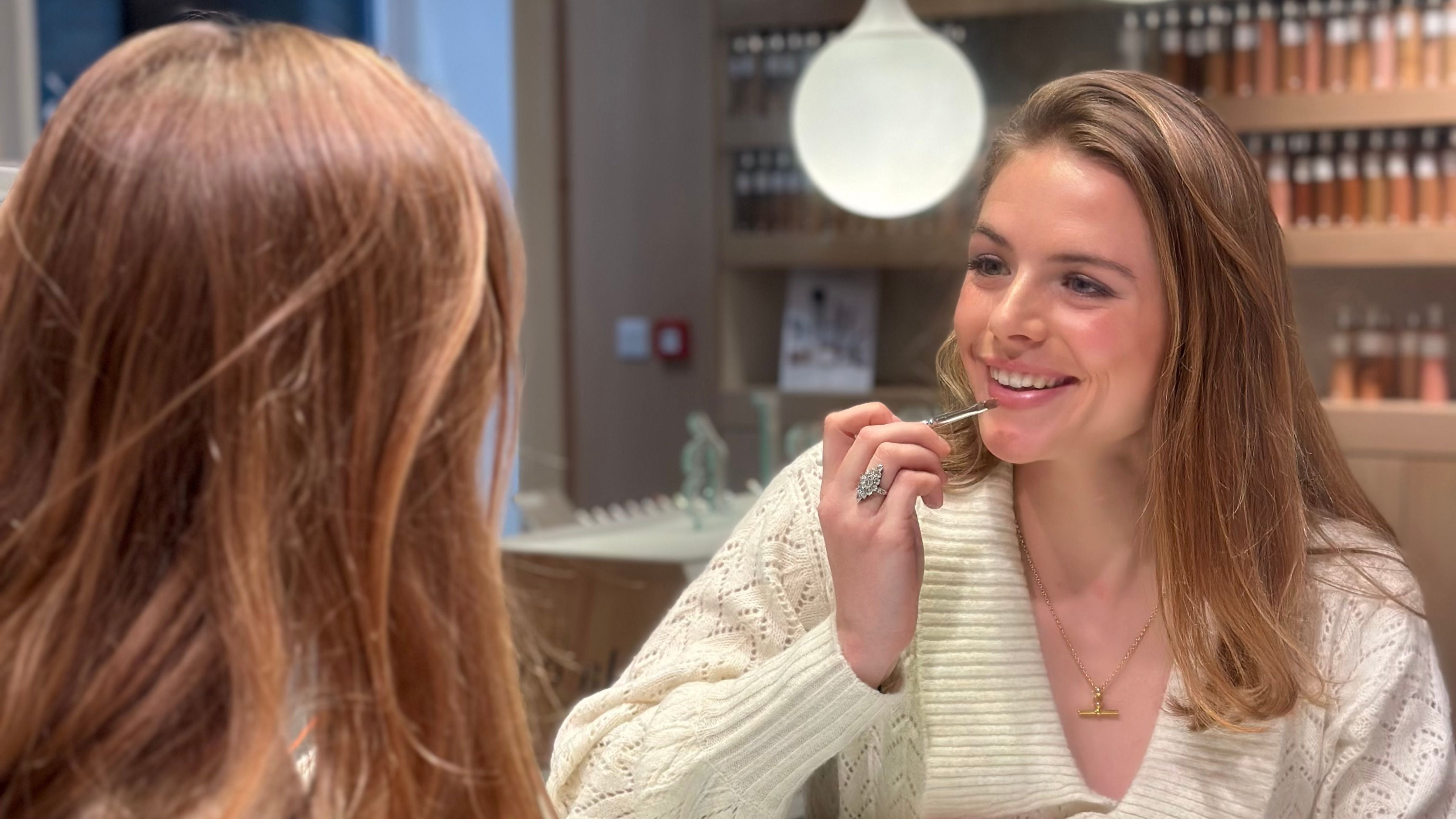

Introduction
London sits at the epicenter of global fashion, beauty, and style. A city that has for generations inspired trends and in changing times, defined the moment. For five decades Lynne Sanders and her renowned Cosmetics à la Carte brand has remained a relevant landmark in London beauty, with a forward thinking, bespoke product experience that has attracted an enduring line up of A list stars including Elizabeth Taylor, Lady Gaga, Debbie Harry, Grace Jones, and Kylie Minogue.
A cosmetic scientist with a passion for enabling women to create their own version of beautiful and a pioneer of natural, organic ingredients, Lynne’s story is one which reflects the challenges faced by women in business and celebrates her accomplishment of thriving in a market dominated by global giants.
As Cosmetics a la Carte celebrates its 50th anniversary, Lynne tells the story of her life in beauty.

"My childhood provided no indication that I would spend my life in beauty.
I was born in Dar es Salaam in Tanzania and then when I was ten moved to a fruit farm in Kent.
My mother didn’t wear make-up and neither did any of my relations, so I had no beauty role models at home."
Lynne in the 1950s
I was known as a difficult child, always challenging things and I suppose I haven’t lost that questioning, disruptive attitude. At school I was lucky though to have an inspiring Chemistry teacher, who introduced me to the joy of making things, which is what Chemistry is really all about. I still love the simple satisfaction and process of making products and imagining new ones to satisfy the needs of my customers.
Growing up I didn’t have a passion for make-up, but I did want to find a way to cover up my spots.
The options were limited to Clearasil, Innoxa Solution 41 and Max Factor Erase, which were all the wrong colour and didn’t really work. They were also all terrible for your skin. So, I scoured Woolworths trying to find something suitable. I discovered Rimmel, but even that didn’t really do the trick.
When I was around 17 my mother provided a glimmer of help. She had no idea about beauty products, so she took me to a department store for a facial provided by Germaine Monteil and bought me the products which they had used. It helped and I was very grateful to her.
The beauty therapist also did my makeup, and I came out feeling utterly peculiar in green eyeshadow and pink lipstick. It was totally inappropriate for a 17 year old and it made me aware of how unsuitable most makeup was for teenagers with horrible and completely unregulated ingredients.
When I finished my A levels my father told me there was no money available to send me to University because it had to be kept to allow my brother to attend. My father was more focused on me securing a good marriage than being better educated, so I had no option but go out and get a job. I found one at Unilever, who I knew from working at various summer jobs. I joined their Research Labs in Isleworth, making hair care products which bored me rigid.
At one point though I got the chance to make a face cream. I don't know why. It was obviously a day when I wasn't testing curl strength or working on machines, measuring how shampoos and conditioners could improve the hair strength.
And I thought, oh my God, this is this is great. I really like doing this

The magic of making a face cream for the first time
And I was lucky because Unilever was very generous about days off and encouraged continuous learning development. The very first Society of Cosmetic Scientists was started in 1969 when I was at Unilever, and I was fortunate to be part of that. Unilever sponsored me, which involved being given one day off and studying one evening each week.

And through this, I was lucky enough to meet the luminaries of cosmetic science at the time, Dr. Tom Elliott, who was at Beecham’s, and Martin Cunningham, who was in the lab I worked in and who started the Society, which is now a four year degree course, and which I am really proud to have been in the first wave of.
Mixing a new colour
And at Unilever I also met Christina. She was older than me and she personified the independent woman that I aspired to be. She was 35 when I met her, and I was 19. She never married because in the fifties if you had a job and you got married, you had to give it up. And she wanted to work. She had a degree in Chemistry, and she'd worked for Monsanto and all the heavy industry stuff in South Wales where she came from. She eventually ended up with Dr. Tom Elliott making the first innocuous cosmetics and then went on to work with Mary Quant on her punk range.
She was my heroine and she taught me so much
When she left Unilever to go to Yardley, Christina took me with her and it was she who was responsible really, for helping me to develop in the makeup world.
Christina was known and admired by everybody in the industry at the time, but at Yardley she had a glass ceiling, like all women did and, in some ways, probably still do. There were four of us working in the labs in Basildon, which was a pretty dreadful place to commute to.

It wasn’t long before Christina, who had weight in the Industry and a strong independent streak, clashed with management and was let go and without her there was no reason to stay.
So, the four of us sat down and discussed what might be next for us working independently. One decided she couldn’t live without a regular paycheck, and one decided she would focus on things beyond beauty, so four quickly became two and in 1973 Cosmetics a la Carte was born.
Lynne & Christina in the 1970s
The inspiration to start the business was primarily being unwilling to be led by marketing organizations hellbent on “me too” cosmetics
I think this was one of the worst things that was going on at the time. Oh, Revlon are doing this, or Max Factor are doing this, we need something like that.
And that was very insulting to anybody in the creative world who wanted to create something different.

There was a gap in the market which I think is still relevant today
There wasn't enough choice. We were in in Belgravia which had quite an international community, all of whom had their own different beauty needs. So, we made colour for all skin colours and while that might not sound like a breakthrough now, it certainly was then.
Lynne & colleague at work
And, of course, nobody was really comfortable in the skin they were in, and everyone wanted to change their skin tone. We were doing black make-up for Hardy Amies fashion shows and built a reputation that was quickly noticed by the stunning Grace Jones, who thought she needed a darker complexion that only we could provide. Unfortunately, she decided that early one Sunday morning when the boutique was closed, but that small detail did not deter Grace. She simply enlisted the help of the local constabulary to wake us up and get us to open-up.

Grace was not the only one to embrace what we were doing. We were located close to many of the embassies, including the Nigerian. The High Commissioner's wife would come in wanting a bespoke foundation and so I just went downstairs and blended something on the spot which would work for her. And I loved that ability to create a totally bespoke product which was what a la Carte was all about.
When we started Biba was London’s trend setter and one day founder Barbara Hulanicki came to us and asked us if we could use our beautiful formulas to make a face colour for her. She was Polish with pale yellow skin, so we created a product she loved which was the origin of our colour 'Gold'
The bespoke concept
Rex Harrison was a superstar having appeared in My Fair Lady and Dr Dolittle among other films, but when he came in with his beautiful wife Elizabeth Harris, he was to me just a tall man wearing a camel coat. He was not of my generation, and I had no clue who he was. Christina was mortified when I asked him for his name as he made the payment.
Tommy Steele came in to get his makeup done to play Charlie Chaplin. Rodney Bewes came in to transform into Widow Twankey for pantomime and the Queen of Spain was a regular visitor. Liz Taylor used to phone and ask her to send our lip gloss to one of her friends. So, we were appealing to actors, to filmmakers, to celebrities and to the aristocracy and diplomats.

And back then there was no social media to build a client base, so everything was achieved by word of mouth. We pandered to need and became a meeting place, that was intimate and personal, rather like an exclusive club and totally unlike a department store.
People used to call us London’s best kept secret but gradually the secret got out
The Motcomb street boutique in the 1980s
Sarah Brightman and her Hot Gossip dance group asked us to create makeup for their live shows, as did U2 who managed to turn up on the same day as Lady Diana. In our small Belgravia space, we had two global icons, one upstairs, one downstairs.
One day a striking American named Jerry Hale turned up and we didn’t know who she was until her friend, the beautiful Marie Helvin, arrived to join her for a facial and we realized it was Jerry Hall.
With the onset of Punk, everyone was looking for bright colours. There was a hairdresser called Keith who worked at London’s hottest salon Smile. He was a great fan of ours and said, “come on, I'm doing hair pink and purple and I want their hair to match their eyes”. So, we created colour for him and many others.
We had, I had, a power that I was totally unaware of. Our focus was always and still is, to put the customer first. In satisfying the beauty needs of London’s best known faces, we were simply doing what we felt passionate about and as times have changed and tastes and products evolved, that customer focus has allowed us to stay relevant.

I have always wanted makeup that doesn't feel, look, or smell like makeup
That has always been my ethos and I have hardened in the belief that simple is best. Pure ingredients that are not there to pad out a formula and confuse people.
We are very focused on products which solve real problems and deliver real benefits.
Lynne & Christina at the Battersea lab in the 1980s
I believe beauty changes incrementally. It goes in five year cycles, in my view. It is very age based and new looks emerge with the next generation. So, now we’re living with the generation that got plumped and tweezed and filled and tattooed. And essentially, they will just get older and older and stay the same. Whereas the young are going to come in, with their new look and right now, it's all fresh faced, pink, and pretty.

Skin care evolves faster, with new discoveries for anti-aging, none of which I believe, because so many of them have been re-hashed from the past. The only way you can change the course of skin is through subcutaneous intervention or possibly pills, but I am very open to the possibility that AI will lead to transformative and better-for-you changes in skincare, including online diagnosis.
Lynne & Christina in the 1990s
Over the years I have been inspired by remarkable people who have fearlessly innovated and positively impacted the beauty industry.
Mary Quant was totally unique, and I loved her for having the foresight to invent beige makeup for beige skins. Nobody was doing it and I thought “finally a transparent makeup that doesn’t show”.
Joan Price, who was ex Harper’s beauty editor, for creating makeup lessons for young women that taught them the basics of beauty, at a time when people were more focused on improving elocution or learning how to walk like a lady. I so admired her and was so happy to create products with her.
And then of course there was Barbara Hulanicki’s Biba who changed everything with the use of deep colours. She literally went back to the black and white movies of the 1920s and created a completely new look for teenagers.
All of these were brilliant innovative people who were doing their own thing in London.

London means everything to me. Having grown up on a fruit farm in Kent, I wanted to be here so much. I couldn't imagine what I was going to do for the rest of my life and to me London represented an escape, an adventure, and a future.
And it's still special because the whole world beats a path to London. It is energetic, diverse, and ever changing and that makes it to me, the place to be. Somewhere where my restless creativity will always be satisfied.
Vintage A la Carte makeup kits
I love my customers. Everything starts and ends with them.
Their needs are the catalyst for new products and their special moments are something we love to be able to contribute to. I am driven by the enduring goal of enabling every woman to look and feel the best version of themselves. I am heartened every time anyone leaves our Pavilion Road shop feeling better than when they walked in.
I also understand that for many women, makeup takes them out of their comfort zone. We are often told “oh I don’t really wear makeup”, so we are mindful to make their in shop experience relaxed and their relationship with makeup natural. We have a reputation for makeup that doesn’t look like makeup, and I think that makes us more accessible to more women. Of course, when the occasion calls for it, we are happy to go all glitter and glam. That is also a part of who we are.

Having been around so long, we now enjoy multi-generational relationships with customers who have become friends, who bring in their daughters and granddaughters to continue the a la Carte tradition and of course this is heartwarming.
Lynne pictured recently with three generations of customers
Our 50th anniversary has given me the chance to reflect on a lifetime of listening to women and finding beauty solutions which work for them. I'm enjoying looking back on our history and relishing the knowledge that we are much observed, much copied and much admired.
But I am also looking forward. I know I and the business are far from finished. We are looking forward to creating new products, meeting new customers, and imagining new ways to impact people’s lives. I am convinced that in the future makeup for men is going to happen and that progress in products and packaging will enhance the world in which we exist.
I also understand that for many women, makeup takes them out of their comfort zone. We are often told “oh I don’t really wear makeup”, so we are mindful to make their in shop experience relaxed and their relationship with makeup natural. We have a reputation for makeup that doesn’t look like makeup, and I think that makes us more accessible to more women. Of course, when the occasion calls for it, we are happy to go all glitter and glam. That is also a part of who we are.


















